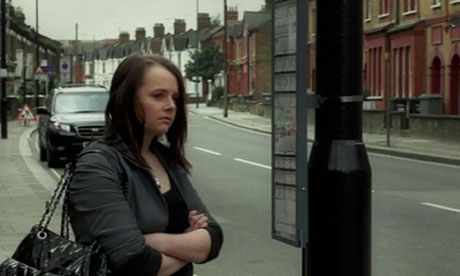
Forty years after abortion was legalised in Britain, open, positive discussion of the subject is still frowned upon. Most women understand the gut-gnawing frisson of panic that accompanies every day of a missed period that might herald an unwanted pregnancy, and most can empathise with the sense of shame at not knowing where or how to discuss the options. Next week, the first ever television advertisement by an abortion provider in the United Kingdom will air on Channel 4, promoting a safe, impartial helpline for women seeking advice on unplanned pregnancy – but the backlash has already begun.
The decision by Marie Stopes International to advertise on television – almost as if it were offering a legal service that a third of British women will have cause to access in their lifetime – has been met with outrage from anti-abortion groups. Rumours that Conservative MPs are planning to table an early day motion against the campaign are already circling in Westminster. This sort of reaction is revealing about the ideology of the "pro-life" lobby.
Opposing the promotion of information about reproductive health is not about saving foetuses but prolonging ignorance. The issue is not termination of pregnancy itself – which may be viewed as a necessary evil – but power, shame and control. Our culture is saturated with graphic commercial images of women's bodies, and yet frank conversation about health concerns that affect all women is almost entirely absent from the public arena.
By bringing women's sexual and reproductive health out of the shadowy world of private misinformation and into the public arena, the Marie Stopes campaign seeks to normalise free and frank discussion of reproductive issues. "This is the right time for a TV advert, because we're still not talking openly about abortion after 40 years," said Julie Douglas, head of marketing at the organisation.
TV advertising currently serves to normalise the most pernicious of commercial insults to women's bodies, as grinningly airbrushed models and minor celebrities persuade us to spend money we may not have on brutal cosmetic surgery and ritualised self-starvation programmes. This avalanche of messages about proper ways to control and punish the female body throws the hypocrisy of the moral minority, in calling for a clampdown on public information about sexual health, into painful relief.
Those who oppose women's reproductive education hold that abortion should never be discussed except in tones of hushed dismay or tragic repentance. Nice girls shouldn't talk about missing a period, arranging contraception or terminating a pregnancy – nice girls, in fact, probably shouldn't be having sex at all. Abortion may be legal, but discussing it simply isn't proper. It may affect one in three women, but it's not the type of thing you want to see in an ad break over tea and biscuits.
Moral recalcitrance of this sort is in fact the preserve of less than a quarter of the British public. In a recent survey for YouGov, more than 75% of Britons believed that the provision of more public information about women's reproductive health was necessary. Unfortunately, thanks to the well-funded agitation of the moral minority, change to our culture of secrecy around women's sexual and reproductive health has been slow.
The amount of disinformation and propaganda that surrounds the abortion issue means that many women still have little notion of how to arrange a termination or what to expect until they find themselves with an unwanted pregnancy. Caitlin, 24, called the Marie Stopes helpline when she had a medical termination last year. "I was in incredible pain after taking the abortion pill at home, and I had no idea whether that pain was normal or if I was in danger," she said. "I didn't know what was going on – but the person on the helpline talked me through everything."
Few of those who lobby for curtailment of women's right to understand or access legal termination of pregnancy seriously believe that a change in the law will stop abortions taking place. The statistics speak for themselves: 20m backstreet abortions take place annually in countries where abortion is criminalised, leading to 80,000 deaths every year. In Northern Ireland, where abortion is still illegal, women routinely present at hospitals with atrocious internal injuries after attempting to induce abortion at home using black-market pills, and face prosecution if they recover.
Encouraging women to feel shameful about our bodies and discouraging us from seeking objective information is, as Shulamith Firestone, paraphrasing Marx, said, alienating women from "the means of reproduction". Marie Stopes's campaign to normalise discussion of unwanted pregnancy should be welcomed by anyone who is a friend to women.

